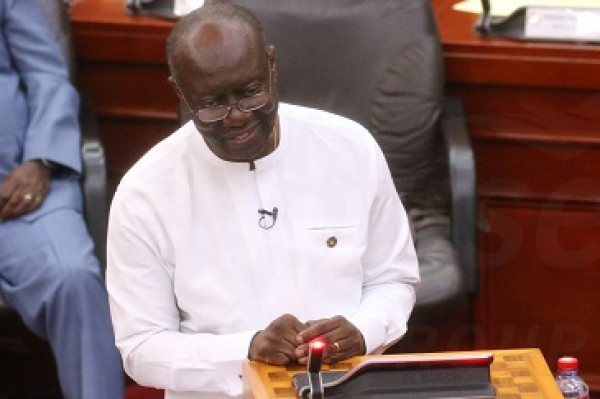The government has declared a state of emergency in the energy sector and indicated that drastic measures are to be taken to resuscitate the sector.
“We are in a state of emergency and must, therefore, respond with urgency and boldness,” the Minister of Finance, Mr Ken Ofori-Atta, said.
Presenting the Mid-Year Fiscal Policy Review of the 2019 Budget Statement and Economic Policy and Supplementary Estimate to Parliament yesterday, he said the challenges in the energy sector posed grave financial risks to the economy.
“At the heart of these challenges are the obnoxious take-or-pay contracts signed by the NDC which obligate us to pay for capacity we do not need,” he stated.
He said Ghana’s installed capacity of 5,083 megawatts (MW) was almost double its peak demand of around 2,700MW.
Webster University
Mr Ofori-Atta said 2,300MW of the installed capacity had been contracted on a take-or-pay basis, which meant that the country was contractually obliged to throw away money for the excess capacity which it did not consume.
That, he said, had resulted in the government paying over $500 million or over GH¢2.5 billion annually for power generation capacity that it did not need.
He also revealed that Ghana had contracted around 750 million cubic feet (mmcf) of gas per day by 2023, even after the government terminated two other liquefied natural gas (LNG) contracts in 2017.
“Current demand is around 250mmcf per day, and this is projected to rise to between 450 and 550mmcf per day by 2023,” the minister stated.
“About 640mmcf of the contracted gas supply is on a take-or-pay basis, meaning we have to pay, whether we use it or not. From 2020, if nothing is done, we will be facing annual excess gas capacity charges of between $550 and $850 million every year,” he stated.
“Mr Speaker, we cannot allow this situation to continue. There is no doubt that the situation in the energy sector is shocking the economy
“We shall, from August 1, 2019, with the support of Parliament, make take-or-pay contracts a beast of the past,” he said.
Additional cash
Mr Ofori-Atta said the government had requested to spend an additional GH¢6.37 billion as part of its planned expenditure for the year.
He, consequently, moved a motion for the request, saying it was necessitated by precautionary expenditures due to regional security developments and the need to pay off debts in the energy sector.
He said when the amount was approved, it would bring the total government expenditure for the year to GH¢85.14 billion.
Adorned in his signature all-white traditional attire (kaftan), with a miniature Ghana Coat of Arms clipped on his right chest, Mr Ofori-Atta said the GH¢78.77 billion that was approved by Parliament in November last year for the 2019 fiscal year was no longer adequate to cater for the additional programmes of the government.
Energy debt
A significant part of the amount requested is to settle outstanding commitments to independent power producers (IPP) in the energy sector which were not programmed for in the 2019 Budget.
“Mr Speaker, consistent with Article 179 (8) of the Constitution, the request for a supplementary estimate is necessitated by additional precautionary expenditures in response to regional security developments and the amortisation of contingent liabilities associated with take-or-pay contracts which have crystalised,” he said.
The minister, who began his presentation by reading some scriptures from the Bible in his usual soft voice, said the key indicators for building a stronger economy had been cured effectively and were stronger now than they were 31 months ago.
A dig at NDC
Mr Ofori-Atta occasionally took a dig at the opposition and made mockery of the Green Book that detailed developments under the erstwhile National Democratic Congress (NDC) government.
“We have looked beyond the legendary Green Book of old but many unsubstantiated claims of infrastructural projects are fabricated rather than built,” he stated, to a surprised and unusually quiet Minority.
Banks bailout
On the banking sector, the Finance Minister said the government, through the Bank of Ghana, had restored confidence in the banking system by securing the otherwise distressed deposits of some 2,655,100 customers, as well as saving over 3,000 jobs.
According to him, total banks’ assets had shot up to GH¢112.8 billion, while growth of credit to the private sector had rebounded by 16.8 per cent in June 2019.
“I am, therefore, happy to announce confidently that Ghana is seeing the revival of that zealous, responsive and, at the same time, responsible banking environment we had been reduced to reminiscing,” he said.



